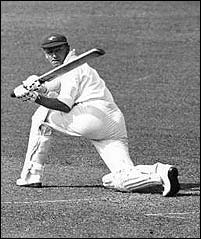 F W Boreham regularly developed his major theme of “making the best of oneself” in relation to the nation of Australia, expressing these thoughts particularly in his Australia Day and Anzac Day editorials.
F W Boreham regularly developed his major theme of “making the best of oneself” in relation to the nation of Australia, expressing these thoughts particularly in his Australia Day and Anzac Day editorials.Not only had Boreham applied the idea of progress nationally but growing up amid imperialistic fervor he had imbibed the belief espoused by Gladstone and other influential writers “that colonies should be planted throughout the world in order to advance civilization” and more specifically “to spread a superior civilization”.[1] The major strand of Boreham’s thinking is focused on his call to celebrate a nation’s achievements.
While Boreham recognised of Australia that “no country in the world is depicted in literature in terms so inconsistent and contradictory”,[2] he also wrote that “no continent has a record of exploration so thrilling, so romantic and so tragic as that which Australia can boast”.[3] Boreham identified contradictions in the Australian pysche saying:
"Among the virtues generally attributed to the typical Australian, modesty does not always find a conspicuous place; yet swinging like a pendulum to the opposite extreme, he occasionally carries his diffidence to such a point that it actually becomes a vice. For some inexplicable reason the Australian is singularly reluctant to emphasise and commemorate the magnificent exploits that adorn his own history. The omission cannot be placed to his credit. If his silence is due to bashfulness it is by no means a commendable bashfulness."[4]
Believing that the Australian ‘bashfulness’ concerning its exploits could be rectified, if not explained, Boreham responded with many inspirational editorials recording the adventures of Australian explorers,[5] the sacrifice of the Australian Anzacs,[6] the wealth and variety of the Australian fauna[7] and the emergence of Australians in the arts.[8] In 1933, Boreham expressed pleasure at a news report that indicated “a growing disposition to heap tardy honours in the hitherto neglected names of our Australian pioneers”.[9] During the 1920s and 1930s aviators such as Charles Kingsford Smith and sports people such as Roy Cazaly and Donald Bradman became heroes of the Australian people.[10] Despite his efforts to highlight the achievements of Australians a survey of his biographical editorials in the 1940s and 1950s revealed that the majority (seventy percent) of his articles focused on British personalities while a much smaller proportion (four percent) featured Australians.[11]
Perhaps if Boreham had written more editorials about Australians he would have detected a growing pride shown by his readers in regard to their national heroes.
Geoff Pound
Image: Donald Bradman, an Aussie icon
[1] D W Bebbington, William Ewart Gladstone: Faith and politics in Victorian Britain (Grand Rapids, Michigan: Eerdmans, 1993), 106-107.
[2] Boreham, Mercury, 16 April 1921.
[3] Boreham, Mercury, 14 June 1919.
[4] Boreham, Mercury, 17 June 1939.
[5] Editorials on explorers included Joseph Banks, Mercury, 29 January 1938; Thomas Mitchell, Mercury, 13 June 1936; Burke and Wills, Mercury, 13 November 1920.
[6] Boreham, Mercury, 23 April 1949.
[7] Boreham, Mercury, 15 July 1933.
[8] Editorials Boreham wrote on Australian writers and poets included Adam Gordon, Mercury, 16 June 1930; C J Dennis, Mercury, 17 June 1939.
[9] Boreham, Mercury, 2 December 1933.
[10] Clark, A history of Australia vol. vi, 208-9, 275, 357.
[11] This survey involved a sample of sixty-eight biographical editorials drawn from the 1940s and 1950s. The major countries from which Boreham’s editorial’s subjects originated were Britain (seventy percent), USA (twelve percent) and Australia (four percent). Other countries represented included Italy, France, Germany, India and Spain.


